 For good or ill, fire transforms. It cooks our food, lays waste our forests, smelts our metals. In this message, I share the lessons from the prophet Isaiah, the transformative power of fire as a metaphor for spiritual purification, and the importance of perseverance and faith amid challenges.
For good or ill, fire transforms. It cooks our food, lays waste our forests, smelts our metals. In this message, I share the lessons from the prophet Isaiah, the transformative power of fire as a metaphor for spiritual purification, and the importance of perseverance and faith amid challenges.
Let’s delve into this significant aspect of our spiritual journey.
The Triune God: A Source of Strength
The concept of the Triune God—Father, Son, and Holy Spirit—is central to our faith. Each plays a crucial role in our lives. The Father, as our Creator, provides an overarching care and love that envelops us in every aspect of our existence. The Son, Jesus, symbolizes the ultimate sacrifice and the path of redemption. Lastly, the Holy Spirit acts as our guide and comforter, constantly present in our daily challenges and joys.
In calling upon the Triune God, we unequivocally affirm our faith in divine intervention and leadership. This is a personal belief I hold strongly, and I am grateful for the profound peace it brings to me.
Living with Faith in God’s Protection
Acknowledging the protection that God offers isn’t passive acceptance. It’s an active choice to live in a way that aligns with God’s teachings and love. When we decide to live under His protection, we open ourselves to incredible transformation.
Faith doesn’t shield us from life’s challenges, but it equips us with the strength to overcome them. Our journey is made lighter knowing that we are not alone; God is our shepherd, leading us to paths of righteousness.
A Communal Expression: The Power of ‘Our Amen’
The closing phrase—our Amen—is more than a conclusion. It’s a commitment to God’s word and a communal declaration of faith. It’s a reminder that we are all connected through our shared belief and that our spiritual journey is one of unity. Together, we stand, strengthened by our collective faith and devotion to God’s path.
In closing, I encourage you to reflect on this message in your daily life. Remember that with God’s protection and guidance, we are never alone. Let us transcend our individual struggles through the strength found in our unity as believers, and let our lives mirror the grace and leadership of the divine Triune God.
Conclusion: Carrying the Message Forward
My prayer is that this message of divine guidance will serve as a beacon for you. As you navigate through the challenges and triumphs of your life, embrace the protection and leadership offered by God the Father, God the Son, and the Holy Spirit. Let this assurance guide your actions and thoughts, leading you to a life of peace and fulfillment. Amen.
![]()
 As we reflect on our place in the world and our responsibilities to one another, I am reminded of how peace begins with our smallest actions. Whether we're checking in on an elder who lives alone or welcoming a newcomer with dignity, our everyday choices shape the world we live in. True peace is forged not only on a grand scale but also in how we handle conflicts at home, in how we choose to parent our children, and in opting for forgiveness over retaliation. These paths may be difficult, but this is what we are called to do.
As we reflect on our place in the world and our responsibilities to one another, I am reminded of how peace begins with our smallest actions. Whether we're checking in on an elder who lives alone or welcoming a newcomer with dignity, our everyday choices shape the world we live in. True peace is forged not only on a grand scale but also in how we handle conflicts at home, in how we choose to parent our children, and in opting for forgiveness over retaliation. These paths may be difficult, but this is what we are called to do.
Embracing the New Self
In his letter to the Colossians, Saint Paul invites us to don a new self, defined by the righteousness of Christ. This represents our ultimate liberation—not merely from physical chains or restrictive systems but from everything within us that distorts our humanity, such as bitterness, prejudice, greed, and pride. We are called to break down the old barriers that divide us.
A New Kind of Family
We belong to a new family that transcends the labels of Greek or Jew, slave or free, and emerges as one people bearing the image of God. As we celebrate emancipation, we're reminded of a profound truth: God's love remains steadfast even when we falter in our faithfulness. True freedom goes beyond the physical—it's moral, spiritual, and deeply communal.
Living with Purpose
We are called to resist the idols of wealth, comfort, and ego. Instead, we should live differently, clothe ourselves with Christ, and strive to build a community that reflects these values. The work of emancipation is ongoing. It lives on in how we raise our children, honor our stories, challenge injustice, and practice hope through daily acts of mercy and bravery.
Building a Legacy
The legacy of emancipation continues in the bonds we create, the communities we nurture, and the unity we seek. We should avoid living like the man who hoarded for himself only to die without truly living. Instead, let us be rich toward God—rich in compassion, generosity, truth, service, memory, and vision. Let us build a world infused with the justice and mercy of God as we remember those who walked before us, guided not by fear or pride but by humility and the holy fire of God's liberating spirit.
May this spirit guide us today as we honor God and live in His freedom. Amen.
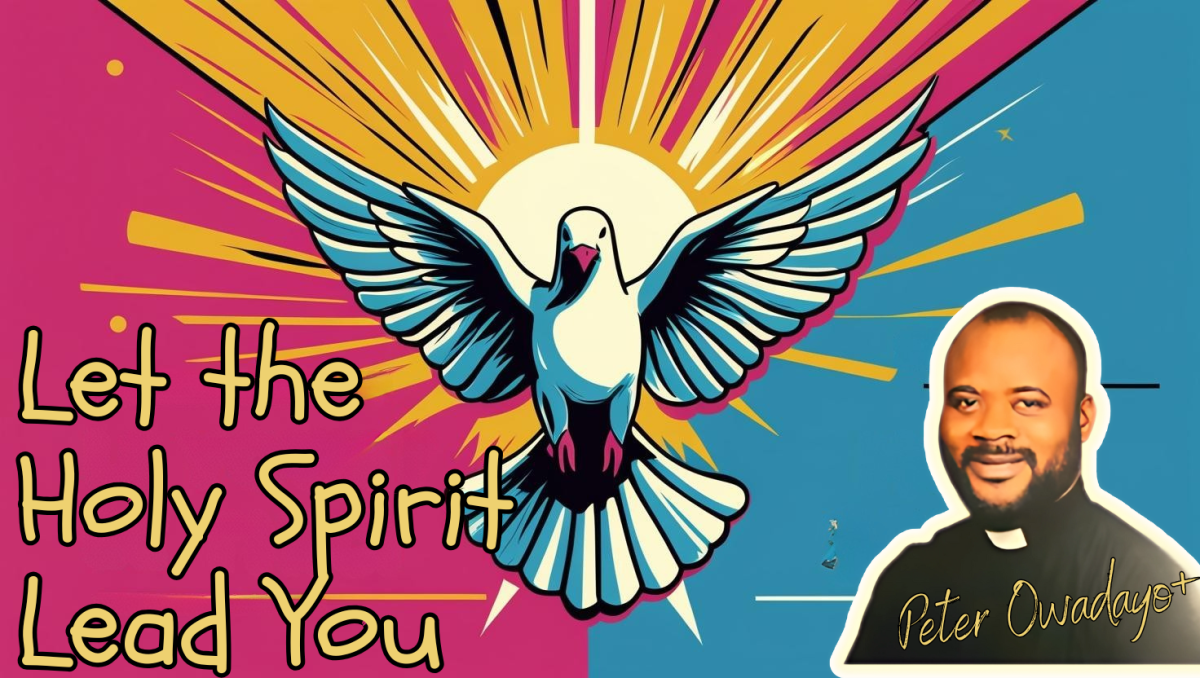 Welcome, everyone. Today, I want to share a message that is close to my heart, one that I have pondered over countless times. It’s about the importance of prioritizing our spiritual lives over material desires, about seeking God’s kingdom first. This is a call to live with intentionality, integrity, and a focus on what truly matters.
Welcome, everyone. Today, I want to share a message that is close to my heart, one that I have pondered over countless times. It’s about the importance of prioritizing our spiritual lives over material desires, about seeking God’s kingdom first. This is a call to live with intentionality, integrity, and a focus on what truly matters.
The Power of Spiritual Priority
We all have desires and aspirations, such as financial stability or personal achievements. But no material gain should come at the expense of our spiritual well-being. The kingdom of God should be our final destination. It's a place of unending joy, peace, and communion with the saints and our loved ones who have gone before us.
Living with Intentionality
Our daily petitions should prioritize peace, compassion, and authenticity. It's crucial to choose a life that mirrors God’s teachings, to strive for holiness and moral integrity. A life centered on God’s kingdom is a life well-lived. Scriptures remind us to seek first the Kingdom of God and His righteousness, as everything else will be added to us. As we prioritize this, we place God at the helm, much like a pilot leading a plane.
Understanding Our Forebears
Before the advent of Christianity, our forefathers worshiped God in their ways. They sought balance, avoided abominable practices, and maintained a spiritual connection with the divine. This history reminds us that prioritizing spirituality isn’t new; it’s ingrained in us to seek and maintain a relationship with God beyond physical confines.
Humility and Wisdom
Let’s turn to the example of Solomon, who understood that physical intelligence could never surpass divine wisdom. He asked God for wisdom to lead his kingdom, a testament to the understanding that only through spiritual depth can we truly thrive. Today, we must emulate this by seeking God’s guidance in all aspects of our lives.
Facing Challenges with Faith
We face challenges, battles not against flesh and blood but against spiritual forces. To withstand this, we’re called to put on the armor of God, to live by faith and prioritize spirituality. Emulating Christ means moving beyond intellectual beliefs to living a life deeply rooted in faith.
Choosing a Life Led by the Spirit
I challenge us to choose spirituality over worldly attractions. The Spirit gives life; the flesh leads to downfall. Joshua 24:15 invites us to choose whom we will serve, and I urge us all to choose God. In doing so, we not only live with purpose but also ensure eternal life.
Conclusion
As we go into the world this coming week, let us live by God's word and Spirit, casting aside the flesh’s temptations. Let us pray for strength to fulfill this commitment, thankful for the guidance of God the Father, Son, and Holy Spirit.
In humility and faith, we shall journey together towards a life prioritized by our spirituality. Amen.
Introduction
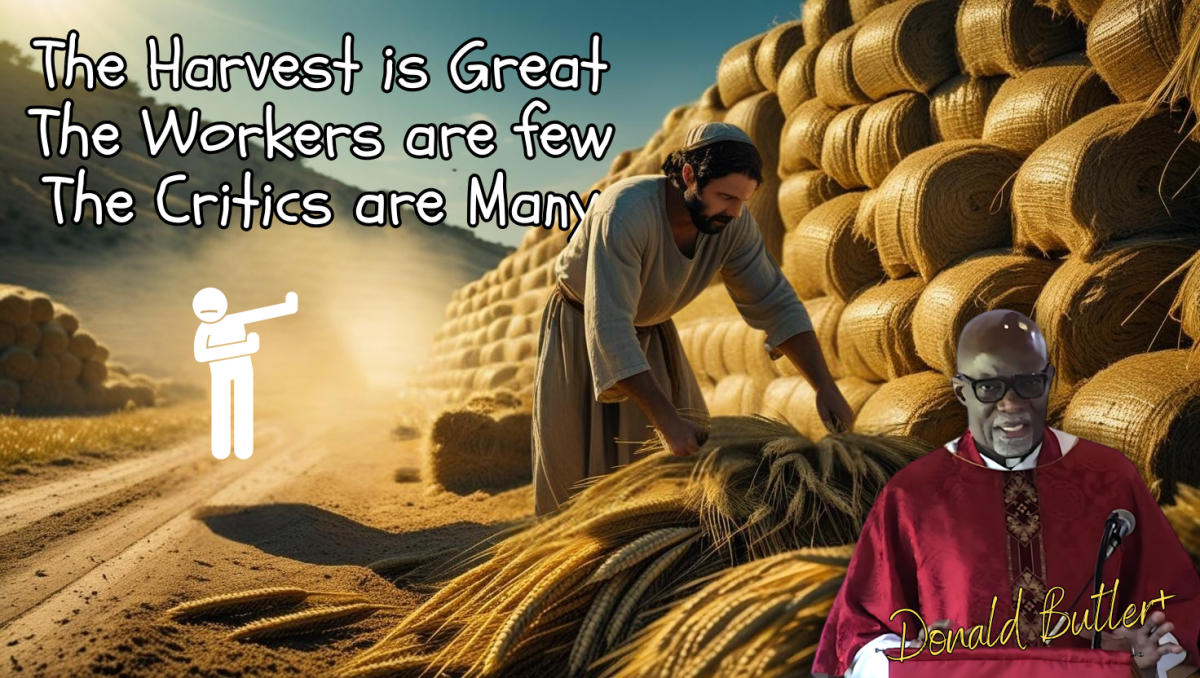 Today’s reflection stems from a pivotal moment captured in St. Luke’s Gospel, chapter 10. We are drawn into the scene where Jesus appoints and sends out his disciples, marking a significant step in his ministry. This is more than just a historical account; it's a narrative that calls us into action and challenges us to understand our role as disciples in today’s world.
Today’s reflection stems from a pivotal moment captured in St. Luke’s Gospel, chapter 10. We are drawn into the scene where Jesus appoints and sends out his disciples, marking a significant step in his ministry. This is more than just a historical account; it's a narrative that calls us into action and challenges us to understand our role as disciples in today’s world.
The Divine Calling
Jesus appoints, calls, and sends. This action highlights that ministry is not just our idea. It's Christ's work, and we are merely his instruments. This divine call is compelling and rooted in Jesus’ compassion for those who are hurting and restless. Jesus desires for everyone to know the nearness of God's kingdom. His invitation is not just for the select few but for ordinary individuals ready to serve.
Our Role in the Harvest
Jesus sees a plentiful harvest and few laborers. He encourages prayer for more workers to join this mission. We often perceive the church as dwindling, yet there is a world of people yearning for the message of salvation. We are sent into everyday spaces—our families, neighborhoods, workplaces, and schools—to proclaim the good news. We are called to extend a simple invitation: “Join me for worship, share the fellowship, come and hear the message.”
Responding with Courage and Trust
Jesus prepares his disciples for challenges, likening them to lambs among wolves. He emphasizes stepping out in faith, depending less on worldly securities, and more on God’s provision. We are reminded that we do not embark on this mission alone but as part of a community, supporting and uplifting one another.
Handling Rejection with Grace
Rejection is a reality we may face in this ministry. Jesus advises his disciples to shake the dust off their feet and move on when not welcomed. This reflects a respect for others’ freedom to choose while we remain steadfast in delivering the message.
Rejoicing in Belonging, Not Accomplishment
The disciples return joyful from their journey, amazed by the spiritual victories. Yet, Jesus redirects their joy from accomplishment to the assurance of belonging to God. Our worth is not in our successes but in our relationship with God, being loved and held by Him.
Conclusion: Embracing the Call Today
Jesus continues to send us into a world hungry for hope and healing. He calls us to travel lightly, trust deeply, and find joy not in achievements but in our identity as God’s children. As we meditate on this passage, let us examine our hearts: How are we being called to participate in Christ's mission? What burdens must we lay down to trust Him fully? May we respond to His call, live authentically, and allow others to see the nearness of God’s kingdom through us.
May you be blessed as you embrace this calling and become instruments of peace and love in the world. Amen.
By Fr Donald Butler
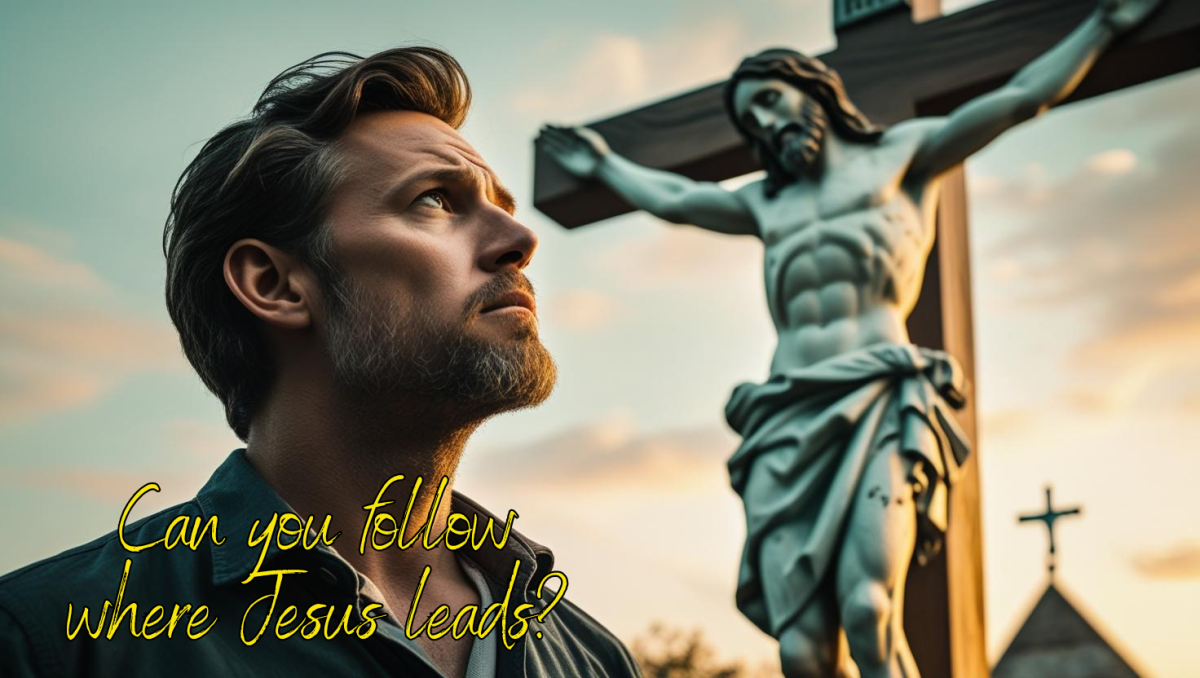 It's a pleasure to be here with so many familiar faces I've met over the years during my ministry in Toronto. This community holds a special place in my heart, and as we embark on this journey together, I pray for God's blessing as you discern your next incumbent.
It's a pleasure to be here with so many familiar faces I've met over the years during my ministry in Toronto. This community holds a special place in my heart, and as we embark on this journey together, I pray for God's blessing as you discern your next incumbent.
A Pivotal Moment in Our Journey
Today, I want us to pause and reflect on the gospel reading from St. Luke's Gospel, chapter nine, verses 51 to 62. We find Jesus at a pivotal moment in his ministry, a time of transition and change. This moment was significant, leading to something rewarding and exceptional, not only for those during His time but also for us today.
When Jesus turned toward Jerusalem, the spiritual center, He faced a path of suffering and death but ultimately one of resurrection and glory. As we consider our own periods of pivot, I ask you: what do you want to achieve? Where will you turn your head? What is it that you are searching for?
Followers with Zest: The Disciples' Zeal
In this passage, Jesus interacts with two groups. The first is His disciples, such as James and John, who were fiercely loyal. When a Samaritan town rejected Jesus, they wanted to call down fire in retaliation. But Jesus rebuked them, teaching that His kingdom is one of love, not violence. The willingness of the disciples to learn from their mistakes serves as an example for us all. No matter where we stand in our spiritual journey, Jesus is there to guide us.
A Call to Total Commitment
The narrative shifts when three individuals either declare or are invited to follow Jesus. The first individual expresses eagerness to follow Jesus, but Jesus responds that even animals have homes, emphasizing the discomfort and uncertainty they must be willing to endure. This reminds us that to truly embrace Jesus, we must be prepared for unpredictability.
The second person wished to bury his father before following Jesus, to which Jesus responded, "Let the dead bury their own dead." This may seem harsh, but during that time, burial could be delayed indefinitely. Jesus emphasized the urgency and immediacy in the call to follow Him.
Finally, a third person wanted to say goodbye before committing to Jesus. But Jesus’ response highlights that true commitment must prioritize moving forward without looking back.
Two Paths: Commitment or Hesitation
We are presented with a choice in this scripture: a path of wholehearted commitment, passion, and willingness to follow Jesus without conditions, or a path cluttered with excuses and divided attention. Jesus isn't calling perfect people; He’s calling committed ones, those ready to walk this path with all of their imperfections.
Walking with Jesus Today
In our modern world, following Jesus means building a relationship rooted in trust and faith amidst uncertainty. It means serving others, reflecting His love in our communities, and allowing His teachings to guide our actions. The challenges we encounter can test our faith, but perseverance leads to a deeper understanding of His purpose for us.
The choice is ours to embrace a journey marked by devotion, even as we stumble and learn. Jesus calls us not tomorrow, but now—to walk with Him imperfect as we are. May we choose to serve Him with unwavering faith and undeterred spirit.
Amen.
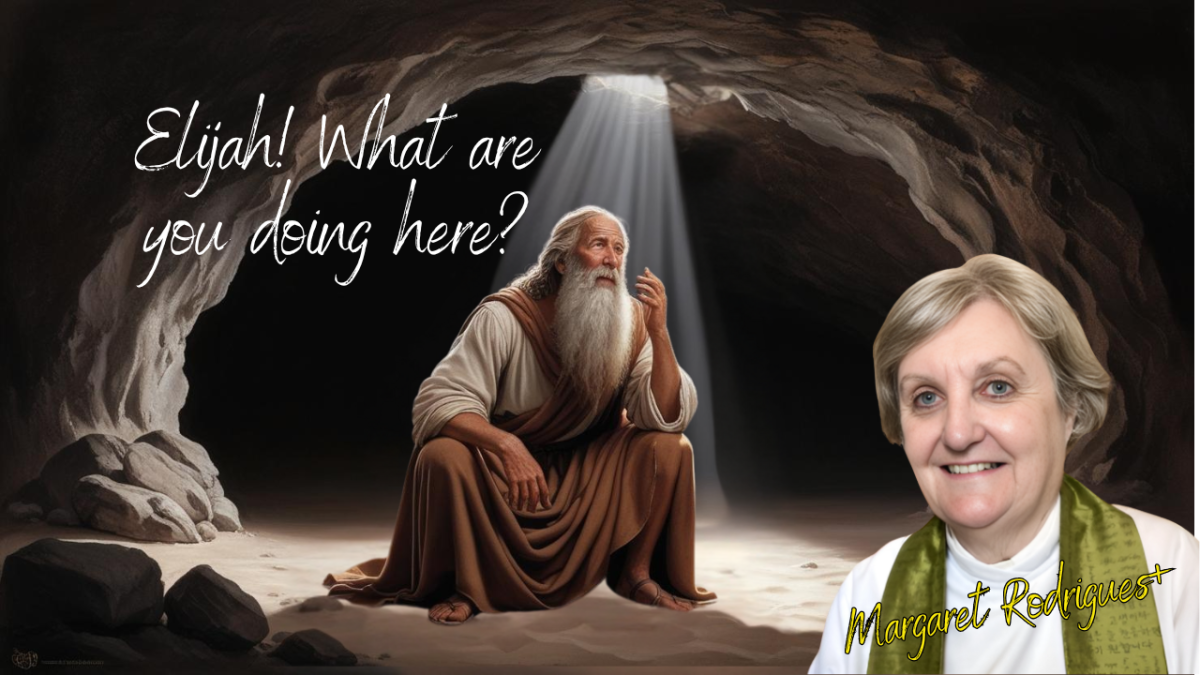 As we reflect on the readings for the second Sunday in Pentecost, we are presented with an inspiring overview of how Jesus guides us through life's toughest challenges. These challenges are brought to light through four distinct yet profound situations: facing hostility, enduring ridicule for faith, grappling with mental illness, and experiencing rejection due to minority gender identity. These reflections aim to unravel Jesus's responses and guidance on navigating these adversities.
As we reflect on the readings for the second Sunday in Pentecost, we are presented with an inspiring overview of how Jesus guides us through life's toughest challenges. These challenges are brought to light through four distinct yet profound situations: facing hostility, enduring ridicule for faith, grappling with mental illness, and experiencing rejection due to minority gender identity. These reflections aim to unravel Jesus's responses and guidance on navigating these adversities.
Facing Hostility and Fear: Elijah’s Story
One of my personal favorite Bible stories is about Elijah, who found himself isolated and fearful on Mount Horeb. This narrative resonates deeply with me, particularly as I have recounted during significant moments of my spiritual journey, such as my ordination. It speaks of divine purpose, affirming that even in fear, God’s plans propel us forward into transformative missions.
Ridicule and Faith: Hope in the Psalms
We often encounter skepticism about our faith, sometimes ridiculed for our beliefs, much like the psalmist laments in Psalms 42 and 43. However, these writings remind us to steadfastly hope in God. The promise of praise and divine help is ever-present, fortifying our spirits amidst doubt and taunting.
Addressing Mental Illness: Compassion in Action
The Gospel of Luke portrays an encounter with a man believed to be possessed by demons—a reflection of how mental illness was perceived in Jesus's time. Jesus’s actions were transformative, restoring the man’s dignity and sanity, illustrating compassion and understanding that inspire today’s caregivers dedicated to mental health.
Embracing All Genders: A Call for Inclusion
As we observe Pride Month, the message from Galatians stands salient—calling us to recognize the unity in Christ that transcends socio-cultural boundaries, including gender. Despite opposition within segments of the Church, this scriptural assurance affirms the dignity and identity of our LGBTQ siblings.
Conclusion: Timeless Principles of Compassion
The teachings of Jesus endure as a beacon of compassion and inclusive understanding. While societal contexts have shifted, His wisdom remains crucial, guiding us towards acceptance and courage. May these reflections offer blessings and insight throughout this pride month and beyond.
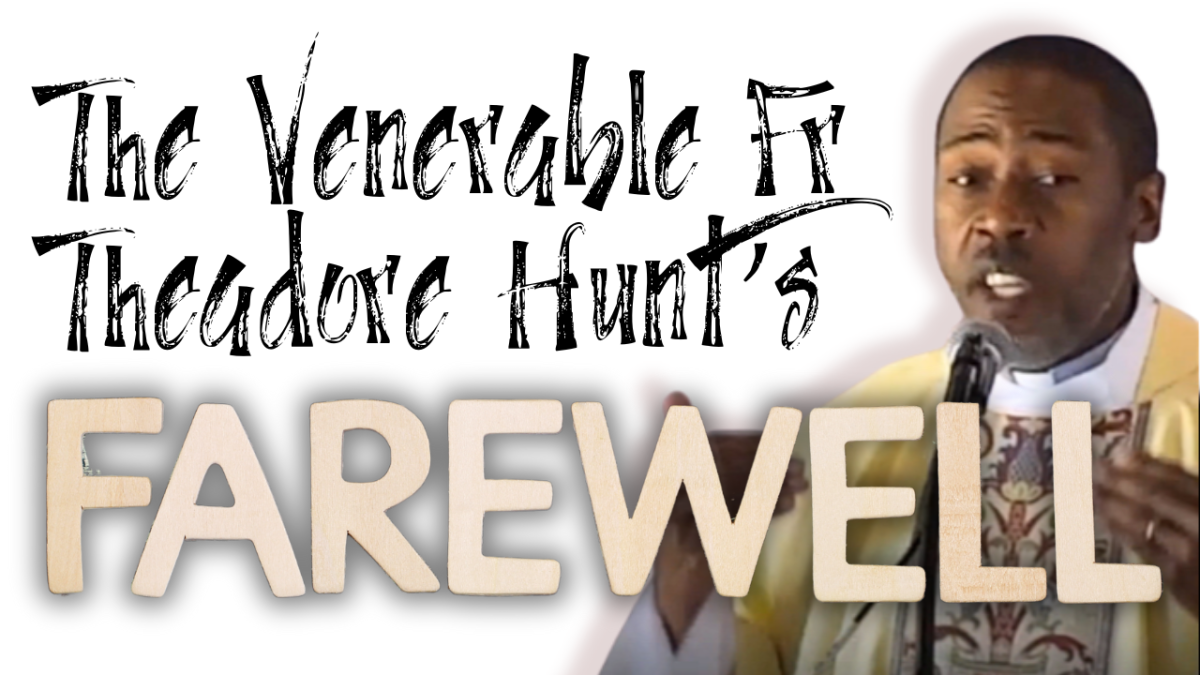 As I stand before you today, surrounded by familiar faces and a community that has become like family, I find it both a privilege and a bittersweet moment to bid farewell to Father Theodore Hunt and his family. Over the past eight years, Father Hunt has been an integral part of our lives at the Church of St. Stephen Downsview. His wisdom, humor, and dedication have touched us all deeply.
As I stand before you today, surrounded by familiar faces and a community that has become like family, I find it both a privilege and a bittersweet moment to bid farewell to Father Theodore Hunt and his family. Over the past eight years, Father Hunt has been an integral part of our lives at the Church of St. Stephen Downsview. His wisdom, humor, and dedication have touched us all deeply.
Honoring Father Theodore and His Family
Our journey today begins with reflections from our beloved Sunday School, led by the youthful voices who hold the future of our faith. They shared heartfelt messages of gratitude, underscoring the joy and lessons imbibed from Father Hunt. We are reminded that while paths may diverge, God's love remains our guide.
Throughout the day, we heard from various community members who share Father Hunt's passion for fostering interpersonal relationships. Brother David from the Sierra Leonean community and Ms. Cheryl Prescod from the Black Creek Community Health Center offered words of thanks, highlighting Father Hunt's seamless integration into our diverse community, transforming mere acquaintances into familial bonds.
The Church Leadership's Tribute
Representatives from the wardens and other ministries shared their appreciation for Father Hunt. They spoke of his unwavering commitment to nurturing our parish, his ability to inspire through his sermons, and the personal touch he brought to every aspect of church life. Father Hunt didn't just minister to us; he walked with us, celebrating joys and offering solace in times of need.
A Musical Farewell
The choir and music ministry underscored the deep impact Father Hunt has had on us. His unique ability to lead without a glance at the hymn sheet and his incredible memory are matched only by his authentic and heartfelt participation in every service.
Personal Reflections
As this event unfolded, I stood as a witness to Father Hunt's influence, echoing the sentiments expressed throughout the day. Relationships built here are real and lasting, and as Father Hunt transitions to a new community at Christchurch, Brampton, his presence will be missed greatly.
A Final Blessing and Gratitude
In conclusion, Father Hunt blessed us with words of gratitude, reminding us that relationships formed here are genuine. As we say farewell, we do so knowing that his time with us has not only been a chapter in his life but also an indelible mark on ours. It is with heartfelt thanks and blessings that we let him go, praying for continued success and divine guidance as he embarks on this new journey.
Let us continue to love and serve one another as we have been taught, welcoming new members with open arms, and witnessing the transformative power of faith and community.
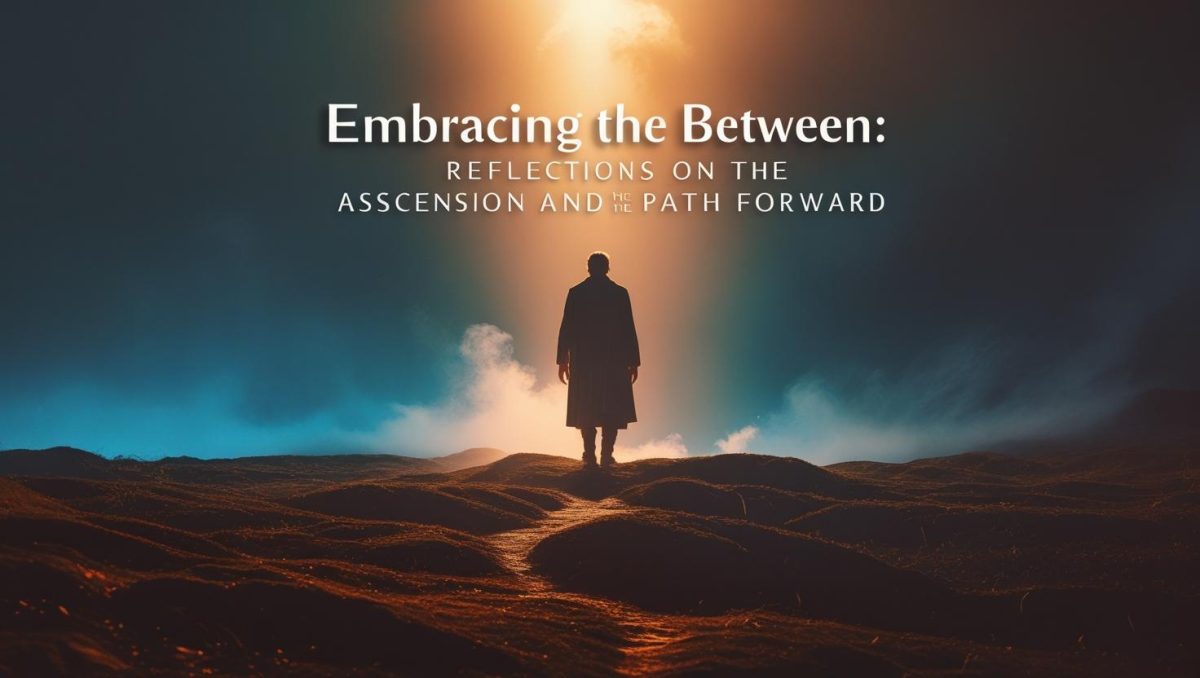 As we gather to mark the occasion of the Ascension, our reflections find anchor in Acts 1:6, where the disciples ask Jesus if now is the time He will restore the kingdom to Israel.
As we gather to mark the occasion of the Ascension, our reflections find anchor in Acts 1:6, where the disciples ask Jesus if now is the time He will restore the kingdom to Israel.
The Significance of the Ascension
Today, we commemorate Jesus Christ's ascension, where He, in the presence of His disciples, transcended bodily to assume His rightful place at the Father's right hand. Through His death, He conquered death itself, absolving the world's sins. What Jesus accomplished is for the salvation of all creation, impacting every life regardless of individual beliefs about Him as Savior and Lord. Paul speaks to this enduring rule in his letters to the Corinthians: "He must reign until He has put all His enemies under His feet; the last enemy to be destroyed is death."
Living in the 'In-Between'
We exist in a period 'between'—after Christ's ascension and before His final return. It's a time marked by His decisive victory over evil, sin, and death on the cross, transforming evil and sin's ultimate power into fleeting discomforts. Reflecting on the early disciples’ experience post-resurrection, we relate to their moments of questioning, "What has truly changed?" when the world continues much as before. Yet, Jesus's promise of the Holy Spirit offers new power and purpose—to be His witnesses not just in close proximity but to the ends of the earth.
The Call to Witness
Jesus's message to His disciples emphasized the need to focus not on the timing of God’s final reign but rather on witnessing His salvation to the world. Each step, starting from Jerusalem rippling outward, reflects this call to action. Jesus said, "I am sending upon you what my Father promised," asserting His divine authority and gifts of the Spirit, emphasizing our roles as His 'sent ones'—making known God’s plan through our lives and testimonies.
Mission in the Present Age
In this interim between Ascension and Return, likened to a 'mopping up operation' following a victorious battle, our mission is clear: to proclaim Christ’s victory, despite persistent pockets of resistance. The world’s evils, while still present, are defeated forces, awaiting their end at Christ’s return. We are to affirm this good news and the reign of Jesus, whose peace doesn’t fit worldly expectations but calls us into a reign characterized by love and humble service.
Facing the Future with Purpose
Our journey and faith walk continually ask whether we will stand with God and in the Holy Spirit’s power as agents of His continued work, witnessing His eternal reign. With the knowledge of how this story concludes—with Christ's ultimate reign and judgment—we are urged to act with faithfulness and to spread this hope.
Let us, with strength from God, continue boldly as apostles—those sent with purpose—to love and serve, embracing this intermediary time as a precious gift for spreading His salvation.
Go in peace to love and serve the Lord, as apostles of our risen and ascended King.
Introduction
 Good morning to all. I'm grateful to have this opportunity to reflect with you today on the theme of identity within our sacred communities, especially as we gather on the sixth Sunday of Easter.
Good morning to all. I'm grateful to have this opportunity to reflect with you today on the theme of identity within our sacred communities, especially as we gather on the sixth Sunday of Easter.
Rediscovering Our True Identity
In the Book of Acts, we find an inspiring story about Lydia, a worshiper of God, whose heart was opened by the Lord to listen eagerly to the Apostle Paul. This account not only highlights Lydia's receptiveness to God's word but also invites us to reconsider our own identities and how we interact with the wider world.
Often, societal influences condition us to define ourselves by superficial labels – our ethnicity, language, or nationality. Yet, as followers of Christ, our true identity is deeply rooted in our faith.
The Role of Labels in Our Lives
Many people identify themselves based on various classifications rather than acknowledging their foremost identity as children of God. The world constantly trains us to distinguish ourselves from others, often at the cost of unity and understanding.
Learning from Paul and Lydia
The narrative of Paul and Lydia encourages us to open our hearts to God's calling, demonstrating obedience and an eagerness to spread the message of Christ across cultural and societal boundaries. This witness challenges us to transcend our ingrained divisions and embrace the unity taught by Christ.
The Importance of Community Gathering
As we gather in worship, prayer, and communal activities, we are called to embody and practice repentance, confession, and forgiveness. Our community meetings are essential for nurturing the virtues of humility and service, reflecting the profound truth that God continues to work through us in ways unexpected and transformative.
The Power of Unity
It is through our corporate gatherings that we are trained in habits of compassion and understanding, essential for overcoming the division that threatens to fragment our society. The pandemic starkly reminded us of our intrinsic need for connection, reinforcing the reality that we cannot fully embody our calling when isolated.
Conclusion: A Call to Faith and Action
This season of Easter embodies renewal and hope—an invitation from God to rediscover our role as His people. May we strive for the peace that comes from aligning our wills with God's, not fearing the path He sets before us. It is not just about us, but about responding faithfully to the Spirit's work in our lives, saying, "Not my will, but Yours be done."
A Closing Prayer
Let us pray together: Gracious God, through visions, you sent Paul to preach the gospel and called women to the place of prayer. Grant that we, like Paul and Lydia, may be responsive to your word and open to where you lead us. Amen.
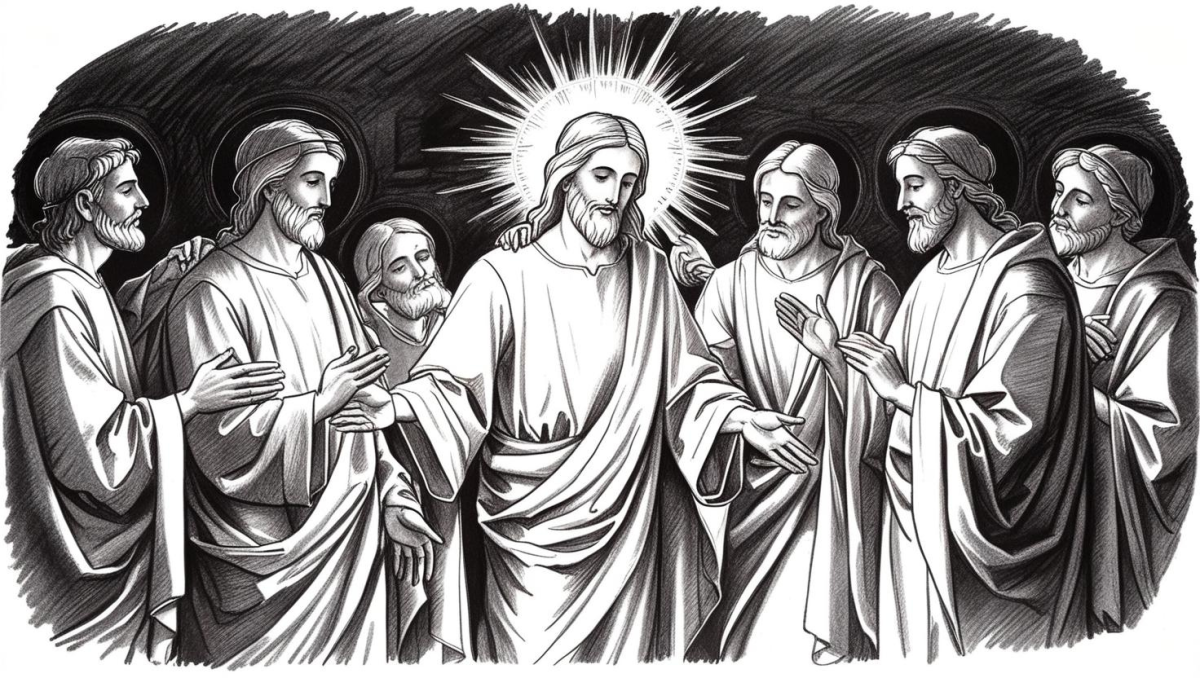 Good morning, dear readers. I am excited to connect with all of you once again as we gather to reflect upon a powerful message from John's Gospel, chapter 13, verses 34 to 35. These verses remind us of a new commandment from Jesus, urging us to love one another just as He has loved us. In doing so, the world will know we are His disciples.
Good morning, dear readers. I am excited to connect with all of you once again as we gather to reflect upon a powerful message from John's Gospel, chapter 13, verses 34 to 35. These verses remind us of a new commandment from Jesus, urging us to love one another just as He has loved us. In doing so, the world will know we are His disciples.
The Context of Love
In our Gospel reading today, we find ourselves in the intimate setting of the upper room, where Jesus shares His final meal with His disciples before His betrayal. It is a somber time, filled with anticipation and uncertainty about the future. In the midst of this gathering, Jesus performs the humble act of washing His disciples' feet. This gesture serves as a profound example of the selfless love He calls us to embody.
Navigating Life's Transitions
We've all faced moments of transition in life—times when we move from the familiar to the unknown. Whether it's the birth of a child, the loss of a loved one, marriage, or changes in our careers, these periods can be challenging. Yet, in these moments, we seek things that anchor us—our identity, values, and beliefs. Jesus provides us with this anchor through His commandment to love one another, offering us stability amidst life's uncertainties.
The Love of Jesus
The love Jesus speaks of is no ordinary love. It's not merely affection, but a profound, selfless act of serving others with empathy and humility. His love is unconditional and seeks the ultimate good for all of us. It's a transformative love, encouraging repentance and faith. This divine love, rooted in self-giving, distinguishes followers of Christ.
Challenges in Loving Like Christ
Despite the simplicity of this commandment, history shows us how difficult it is to truly love others as Christ loves us. We often become self-focused, distracted by our own lives, and lose sight of the needs of those around us. Our challenge is to look beyond our cultural, social, and economic lenses and embrace others with Christ-like love.
The Importance of Community
In the early days of Christianity, the apostles' love for one another was a beacon of light in the darkness. Their selfless acts drew others to them naturally, without the need for grand gestures. By living in genuine love and service, we too can attract others to the faith by our example.
Our Call to Love
As I reflect on Jesus' impending departure, I see the urgency in His message to His disciples—a message that is equally relevant to us today. We are called to embody the love of Jesus, caring for one another not out of obligation but because it is the essence of God's love. This kind of love is transformative for both us and the world around us.
Conclusion: A Call to Action
Friends, I encourage you to look at those in your life as gifts from God. Cherish these relationships and strive to love and serve each person, upholding their highest good. Remember, even our enemies are gifts, just as Jesus shared the table with Judas. May we pray for the wisdom, will, and strength to follow Jesus' example, glorifying our Savior through our selfless love.
Closing Prayer
Let us pray together: Almighty God, our Heavenly Father, whose son taught us that every service done for others' sake is done for Him. Give us the wisdom, the will, and the strength to be living examples of this truth that in serving one another, we may glorify Him who is our Savior and our Lord. Amen.
 For good or ill, fire transforms. It cooks our food, lays waste our forests, smelts our metals. In this message, I share the lessons from the prophet Isaiah, the transformative power of fire as a metaphor for spiritual purification, and the importance of perseverance and faith amid challenges.
For good or ill, fire transforms. It cooks our food, lays waste our forests, smelts our metals. In this message, I share the lessons from the prophet Isaiah, the transformative power of fire as a metaphor for spiritual purification, and the importance of perseverance and faith amid challenges. 








